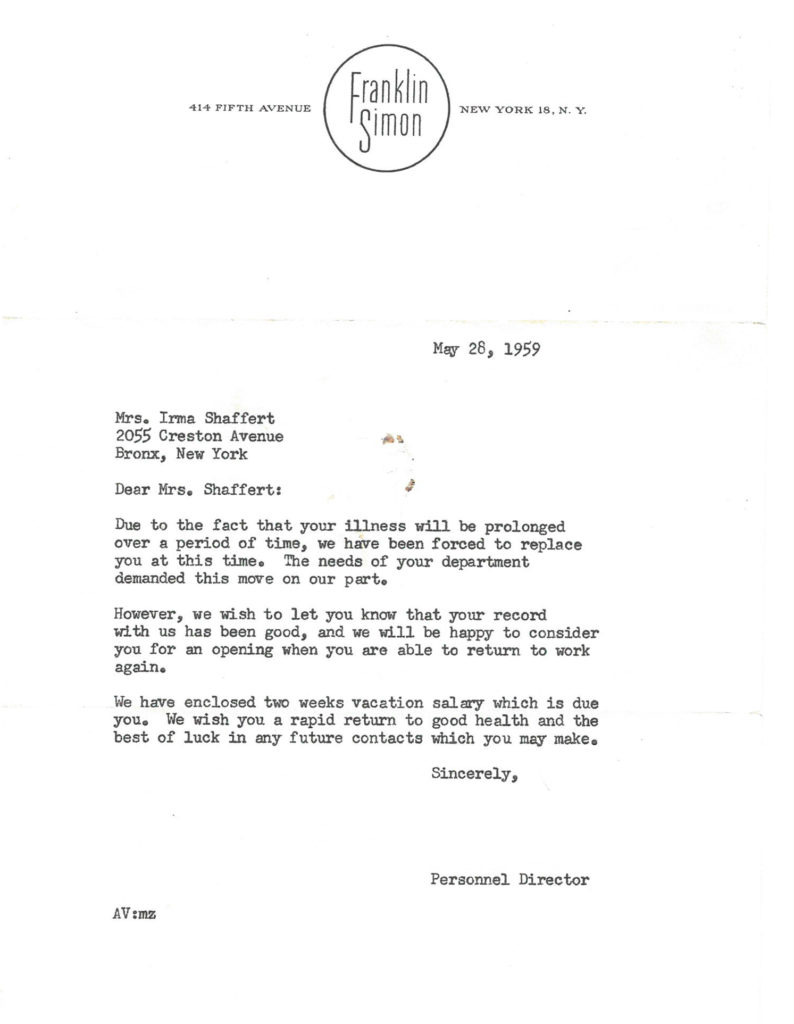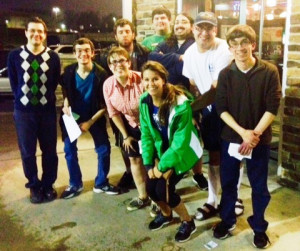The Arc Promotes Workforce Development for Egyptians With Disabilities Through U.S. Department of State Exchange Program
 [WASHINGTON, DC] The Arc will host Michael Mikhael, Executive Director and founding member at the Farah Foundation for Development in Alexandria, Egypt as a fellow in the U.S. Department of State’s Professional Fellows Program (PFP). This two-way exchange embraces the power of individual citizens to find creative solutions to challenges they face in both the United States and around the world. During the month-long fellowship program, mid-level foreign leaders and their U.S. counterparts build sustainable partnerships while enhancing their leadership and professional skills.
[WASHINGTON, DC] The Arc will host Michael Mikhael, Executive Director and founding member at the Farah Foundation for Development in Alexandria, Egypt as a fellow in the U.S. Department of State’s Professional Fellows Program (PFP). This two-way exchange embraces the power of individual citizens to find creative solutions to challenges they face in both the United States and around the world. During the month-long fellowship program, mid-level foreign leaders and their U.S. counterparts build sustainable partnerships while enhancing their leadership and professional skills.
While in Washington, D.C., Michael will be exposed to innovative strategies of workforce development for people with disabilities. He will also have the opportunity to gain hands-on exposure to the different advocacy efforts that nonprofit organizations utilize in the struggle for disability rights. This parallels the PFP’s objective of broadening the professional expertise of individuals from around the world working to address common challenges, all while building enduring partnerships among American and foreign participants.
Michael comes to the U.S. with a strong background of supporting persons with disabilities. As early as 1993, he saw the need for economic empowerment programs that catered to individuals with disabilities while engaged in a church-led disability program, Faith and Light. Subsequently, in 2010, he established the Farah Foundation that has developed partnerships with the United Nations’ International Labor Organization (ILO) and the U.N. Development Programme (UNDP) to implement a labor market access and entrepreneurship program for people with disabilities. The foundation also created a database where individuals may seek disability-friendly employment. Additionally, the agency developed an artisan-craft program through which women and people with disabilities are taught marketable craft skills. In addition to these workforce activities, the Farah Foundation supports an orphanage for children with disabilities in Alexandria, Egypt. Upon returning home, Michael believes this new knowledge will help his organization incorporate more sustainable, comprehensive programs for people with disabilities in Egypt.
“The Professional Fellows Program (PFP) is an extraordinary opportunity, and The Arc is thrilled to participate. During Michael’s month-long fellowship, not only will he gain invaluable advocacy and technical skills he can use when he returns to the Farah Foundation, but The Arc will simultaneously also deepen its cultural competency knowledge and understanding. It’s a win for both of us,” commented Jonathan Lucus, Managing Director, The Arc@Work.
The Arc is one of hundreds of U.S. organizations chosen to host Professional Fellows participants from more than 40 countries and territories this spring. At the conclusion of the program, May 30-June 1, more than 270 fellows will gather in Washington, D.C., for the Professional Fellows Congress, a three-day concluding event aimed at preparing fellows to implement follow-on projects upon their return home.
Since 2010, more than 2,000 participants from more than 77 countries have taken part in the PFP in cities across the U.S., and approximately 1,000 American hosts have participated in reciprocal exchanges overseas.
The Arc advocates for and serves people with intellectual and developmental disabilities (IDD), including Down syndrome, autism, Fetal Alcohol Spectrum Disorders, cerebral palsy and other diagnoses. The Arc has a network of over 650 chapters across the country promoting and protecting the human rights of people with IDD and actively supporting their full inclusion and participation in the community throughout their lifetimes and without regard to diagnosis.
Follow @ProFellows on Twitter and join the conversation using #ProFellows.
For press inquiries please contact:
Kristen McKiernan, Senior Executive Officer, Communications (mckiernan@thearc.org)
U.S. Department of State, Bureau of Educational and Cultural Affairs: eca-press@state.gov











